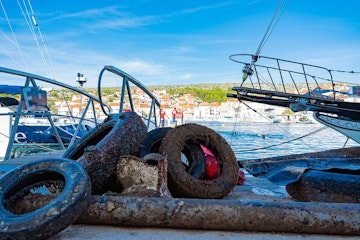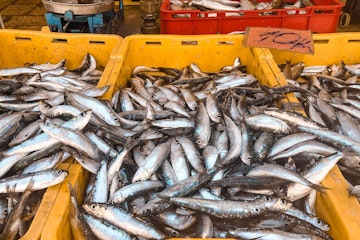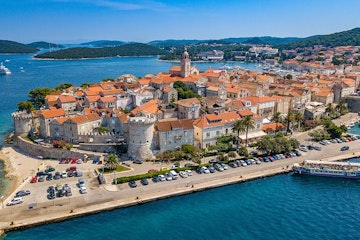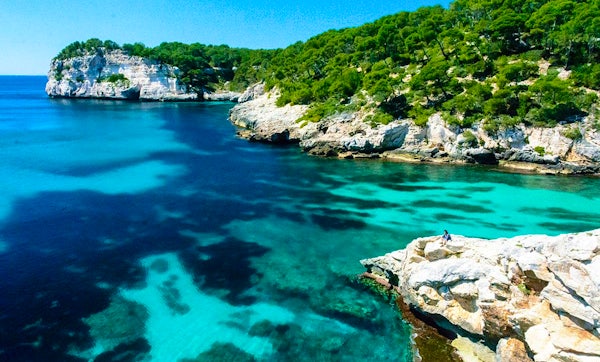Offering the perfect environment for a relaxing holiday, the idyllic Mediterranean Sea is known for its tranquility and beauty, marine diversity and beautiful culture. However, there are many threats facing this ecosystem that need to be addressed to ensure it remains healthy, diverse, and inspiring for future generations.
The Mediterranean Sea stretches from the Atlantic Ocean on the west, to the Asian continent on the east, and separates Europe from Africa. The basin expands up to 2.6 million square kilometres with an average depth of 1,460 meters, and a maximum depth of 5,267 meters, making it the largest enclosed sea on Earth.
It occupies an area of approximately 970,000 square miles (2,510,000 square km) and its highly diverse marine ecosystem hosts around 4-18% of the world’s marine biodiversity.
The Mediterranean Sea is one of the most important tourism destinations in the world. It is a haven for sailors, sunbathers, swimmers, and adventurers, and it provides excellent opportunities for doing any type of water sports: diving, snorkelling, windsurfing, jet skiing, kayaking and much more!
On the other hand, water resources, ecosystems, food safety, health and human security are under threat. Currently, we are witnessing the global rise of temperatures, acidification of seawater, overfishing, pollution and the growth of the tourism sector faster than it can cope. In other words, human activity in and around the sea threatens marine life in the Mediterranean, especially taking into account that this sea washes on the shores of more than 20 countries.
What is Threatening the Mediterranean Sea?
Plastic Pollution
200,000 tons of plastic is dumped in the sea each year, representing more than 60% of all the trash found at the bottom of the sea, according to a study by the French Institute for Sea Research and Exploration. Densely populated coasts, a lack of environmental awareness, maritime transport and a high influx of tourists are contributing to this problem. It is not only the floating plastic that is a problem, but also microplastics that come from a variety of sources, including larger plastic debris that degrades into tiny pieces. Plastics can take hundreds, or sometimes even thousands, of years to break down, which then affect all organisms in the food chain, from tiny species like plankton, through to whales.

Overfishing
The Mediterranean is the world’s most overfished sea, with the highest percentage of unsustainably harvested fish populations, according to a recent report from the United Nations Food and Agriculture Organization. Although fishing is a very important source of income, beneficial for employment rates and food security, the accelerated rise in fishing in a number of Mediterranean countries over the last decade has led to a steady decline in fish stocks.

Bottom Trawling
This industrial fishing method destroys the natural seafloor, including bottom-dwelling plants and animals. By dragging the large, heavy nets across the sea bottom, everything gets swept up in the net, including coral and sponges. It results directly in the scraping and ploughing of the bottom layer and reduces the amount of flora and fauna present.
Urbanisation of the Coastline
This is one of the major problems in the region, very often leading to a loss of marine biodiversity due to habitat destruction and physical change that degrades surface waters. Problems connected to the concretisation of the coastline affect the seas capacity to soak up heat leading to speedier erosion.
Climate Change
According to a Mediterranean Experts on Climate and Environmental Change (MEDECC) report in 2019, the temperature rise in the Mediterranean is higher than current global warming trends (+1.1°C). Climate change also results in decreasing precipitation, sea-level rising, ocean acidification, sea temperature rise, and higher risks of soil degradation, quality, and erosion.
We should not forget other factors putting pressure on the Mediterranean sea including agriculture, the introduction of non-indigenous species, maritime transport and many others.

Mediterranean biodiversity and the ecosystems that support it are primarily sensitive to human impact. Fortunately, solutions to environmental problems are not impossible for superior creatures like humans, if we are truly committed. We expect to see many positive changes in the future that will keep the Mediterranean healthy and attractive for generations to come.
If you want to learn more about the connection between climate and our sea's oceans, have a look here.
